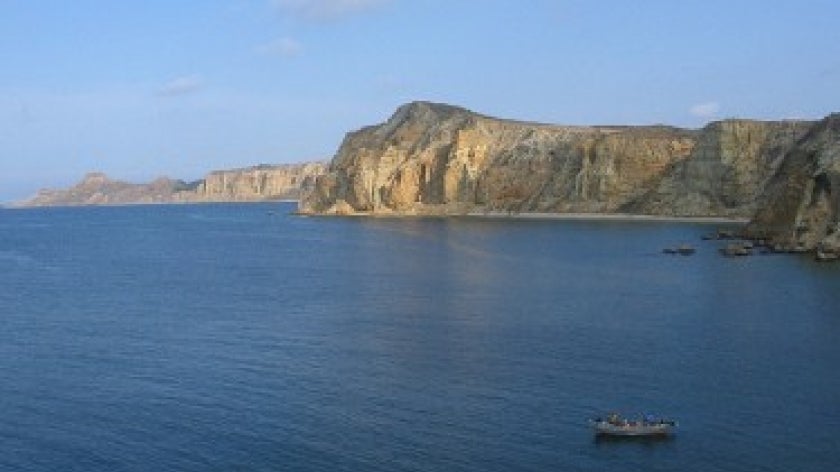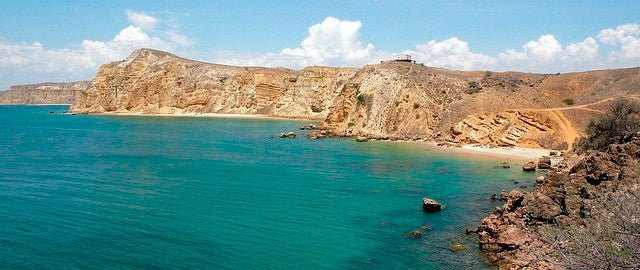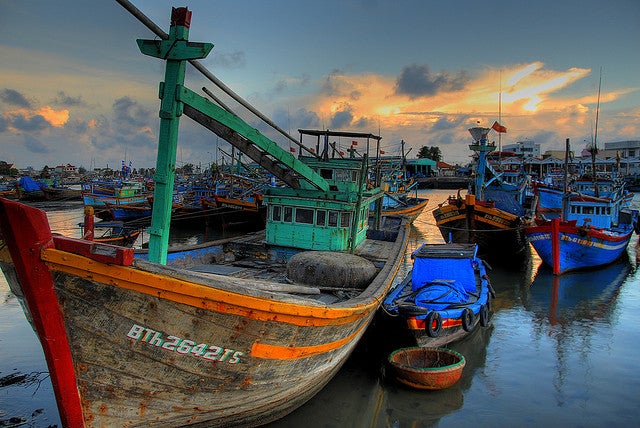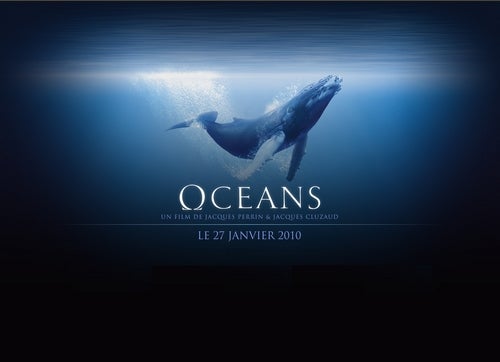
The world’s oceans and coastal areas deliver a staggering variety of essential goods and services for people worldwide. Marine and coastal resources directly provide at least US$3 trillion annually in economic goods and services, while non-market ecosystem services are estimated to be worth US$21 trillion per year (Catalyzing Ocean Finance, 2012). In part because of their extraordinary economic value, however, coasts and oceans face increasing threats to their health and natural functioning. Overfishing aggravated by the use of destructive fishing gear and methods, and degradation caused by coastal pollution is accelerating, with almost two-thirds of global fish stocks in trouble and in need of management measures. In addition, surveys estimate that at least US$50 billion are lost annually – particularly from developing country economies – when illegal, unreported and unregulated fishing depletes fish stocks.
The urgent need for increased action becomes clearer when the role of oceans as regulators of the global environment is taken into consideration. Recent studies indicate that marine-related carbon sinks are at least as important as terrestrial forests in the global carbon cycle; they are being lost an estimated 4 times faster than rainforests. Marine habitat loss poses a grave threat to living resources that cross borders, especially when coupled with an increasing number of “Dead Zones” directly related to human activity – which have expanded to 245,000 km2 of the ocean bottom (Catalyzing Ocean Finance, 2012), an area the size of Great Britain and Northern Ireland – resulting from nutrient pollution from agriculture and sewage. On top of this, multiple new challenges related to climatic variability and change are becoming clear, such as coastal flooding from sea-level rise, storm vulnerability, warming oceans, and acidification.

Benguela Current. Photo: © filipeb / Flickr
In the face of increasing threats to the health of the world’s oceans, the Global Environment Facility is drawing on more than two decades of experience supporting programs with a proven record of achievement in protecting marine biodiversity and ecosystems. The good news is that with determined effort, smart investment, and strong international cooperation and participation, the cost of substantially reversing negative trends in ocean environments may well be manageable. The report Catalyzing Ocean Finance concludes that sustainable ocean management is not an intractable challenge and that with a public investment of approximately US$5 billion over the next 10-20 years, substantial progress can be achieved. Such an investment could act to catalyze many times that amount in public and private investment, thereby creating a global transformation of ocean markets toward sustainability. This level of investment over an extended period compares favorably to the large sums estimated to be necessary to address threats in other environmental sectors.
With its focus on transboundary waters, the GEF has acted as a catalyst to demonstrate and scale up effective strategies to address ocean challenges. Looking back over two decades of projects in International Waters, the GEF has invested more than half a billion dollars while leveraging some US$2 billion in co-finance towards safeguarding world oceans and their coasts in partnership with agencies, civil society organizations and countries. GEF has responded to requests from countries to support international cooperation and foundational capacity building projects for 20 Large Marine Ecosystems (LMEs) representing more than one-half of the planet’s total number of LMEs that developing countries share.
Examples of successful GEF support include the Strategic Partnership for a Sustainable Fisheries Investment Fund in Sub-Saharan Africa, established in order to reverse unsustainable fisheries in the LMEs, and the Partnerships in Environmental Management for the Seas of East Asia (PEMSEA), a successful regional coordinating mechanism for the implementation of the Sustainable Development Strategy for the Seas of East Asia.

Fishing boats on East Sea. Photo: © Lucas Jans / Flickr
GEF’s focus on catalyzing multi-state cooperation means that the multiple stressors on coastal and marine eco-systems are addressed collectively, with countries acting together so that communities benefit from on-the ground results in improved livelihoods and access to safe water sources. Where capacity is built and collective action programs agreed, GEF supports implementation of Strategic Action Programs with reforms and investments that focus on results.
The Benguela Current LME, another important GEF investment, has been threatened by destructive fishing gear, pollution, and habitat loss for decades. Not only have these trends harmed the marine environments, they also represented a threat to the food security of millions of people whose lives depend directly on fishing. For this reason, the GEF provided support to Angola, Namibia, and South Africa in their efforts to create the new, ecosystem-based, Benguela Current Commission – the first Large Marine Ecosystem commission in the world.

The GEF supports awareness raising activities about the myriad of challenges faced by the world’s oceans. An example of this work is the Oceans film directed by Jacques Perrin and Jacques Cluzaud, featuring an exceptional look beneath the sea surface while both captivating and educating its audience.
While substantial results have been achieved over the years, the GEF recognizes the magnitude of the challenges ahead and insists that sustainable ocean management could become an enduring legacy of today’s generation of decision-makers if efforts are scaled up.
Click on photo to see trailer